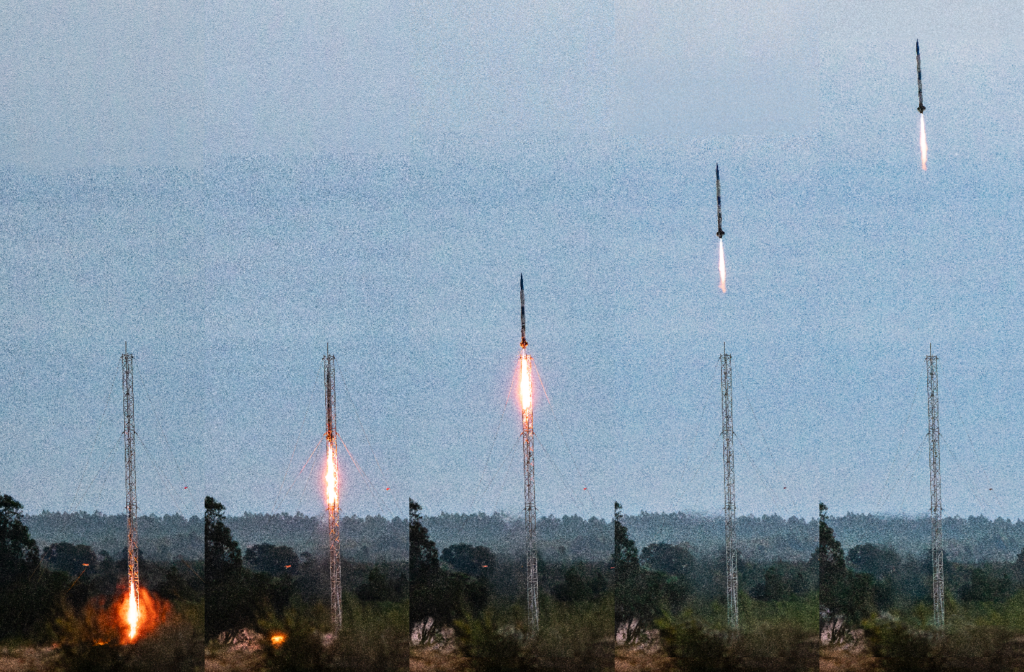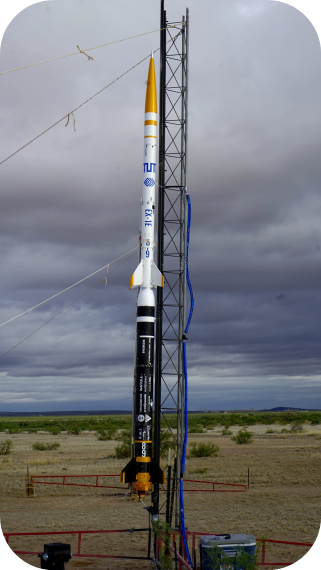The last year was an incredible journey for our team. Launch campaigns on two continents, three launches, three awards, one new project, over 50 new members, and many other highlights defined our year. Below, we provide some insights into our achievements over the past year.
Project Nixus

After a year of development, 2024 marked the highlight of Project Nixus. With a successful launch campaign at EuRoC 2024, WARR is proud to have launched the very first cryogenic bi-liquid rocket in European student rocketry. At 18:44 (UTC+1) on 14 October, the EX-4B was launched, reaching an apogee of 1,678 meters. The competition judges recognized the team’s exceptional performance with three awards: the Team Award, the Payload Award, and the Level 3 Award.
After the scrapped launch campaign in 2023, the team completely reworked the rocket’s design and significantly improved its reliability. However, Project Nixus was not just about launching our first bi-liquid rocket; we also aimed to advance our propulsion capabilities. We have begun investigating an electric pump-fed propulsion system, and developments are already underway. We aim to complete our first pump prototype by early 2025.
Project WESP
In Project WESP, the greatest milestone was successfully participating in the largest student rocketry competition in the world. As WARR Rocketry, we didn’t settle for a typical rocket; instead, we launched Germany’s first student-built two-stage rocket. This project focuses on solid propulsion, which we used as the propellant. In preparation, we successfully conducted a single-stage test launch in Germany. After the competition in the USA, the project transitioned to its next phase. We plan to launch again at IREC in 2025 to significantly reduce the rocket’s weight and achieve greater apogees. Like Project Nixus, Project WESP also has long-term ambitions. We aim to achieve higher velocities and altitudes by deepening our knowledge of solid propulsion and developing our own solid rocket motors.

Project Retrofire
In previous years, controls and landing systems received less attention at WARR Rocketry. However, growing interest from students, the university, and the broader aerospace community inspired us to initiate Project Retrofire. This project focuses on building a hopper vehicle for the Lander Challenge, a global competition for student teams to design a rocket hopper capable of a 50-meter free flight.
So far, the project has passed its MDR (Mission Definition Review) and is now working on finalizing the vehicle design. In parallel, we are developing both a bi-liquid hopper and an electric fan hopper to gain initial insights into the flight dynamics of such systems.
Summary
All in all, we are proud of our accomplishments. We showcased our capabilities at two major competitions, and teams around the world were impressed by our engineering expertise and the dedication of our team members.
